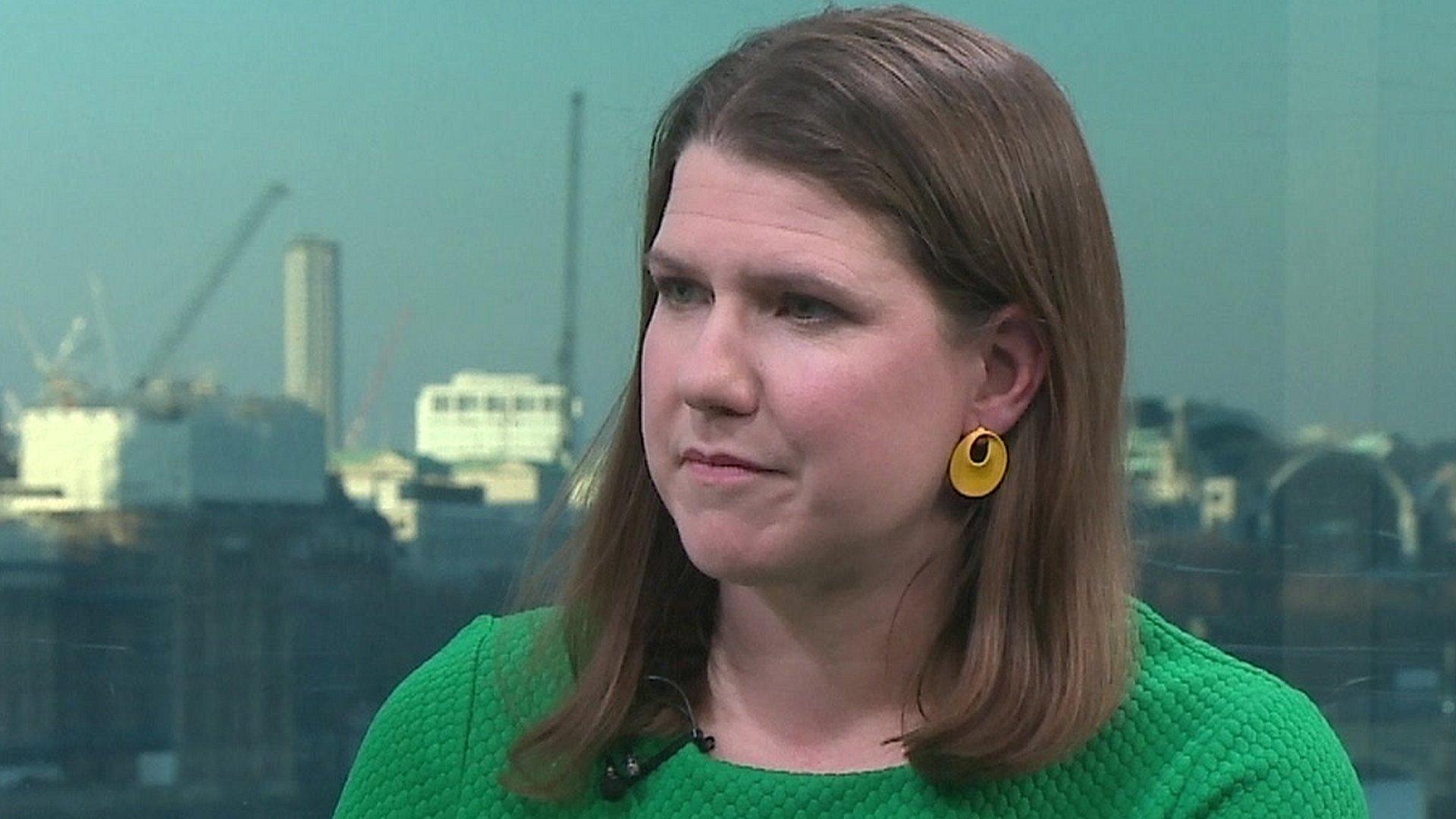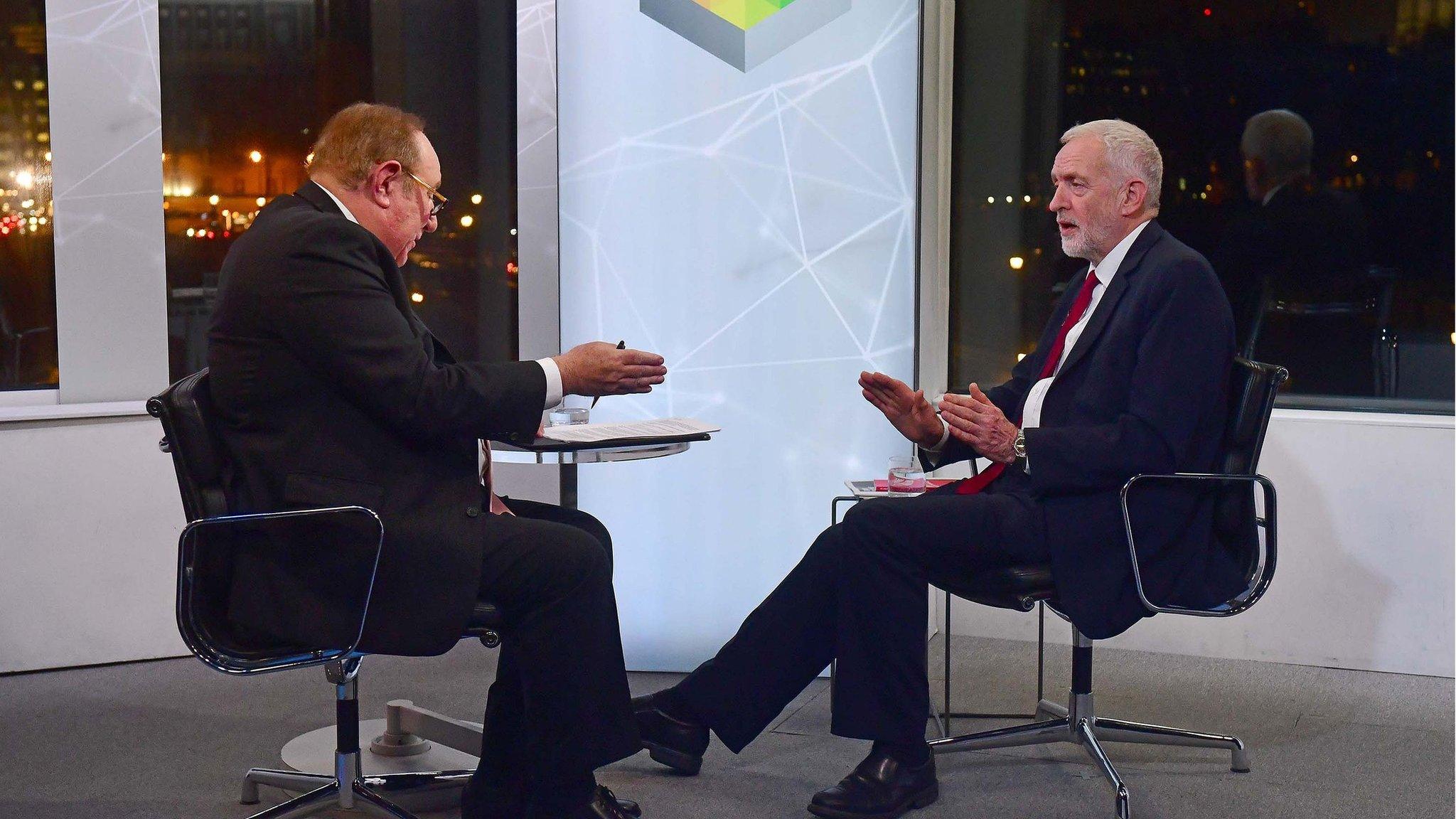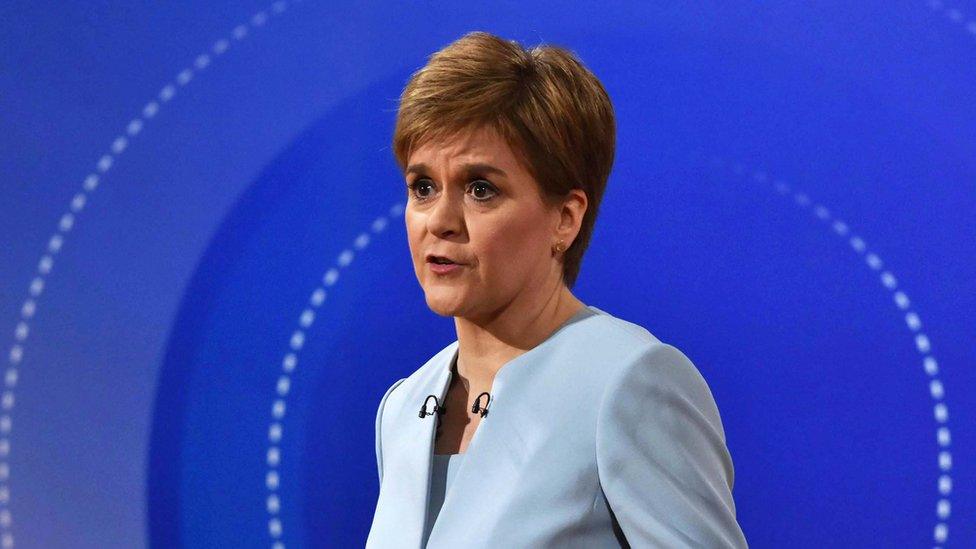General election 2019: Jo Swinson interview fact-checked
- Published
Jo Swinson: “I am sorry that I did that, it was not the right policy, and we should have stopped it.”
The Liberal Democrats' Jo Swinson was the third party leader to face the BBC's Andrew Neil in a series of special interviews in the run-up to polling day.
Over 30 minutes, he quizzed Ms Swinson on her record in government and her party's plans for the future. BBC Reality Check has looked at three of her claims.
Claim: "Most Remainers actually support our policy" of revoking article 50 to stop Brexit
Reality Check: Exactly half of Remainers support the idea in the poll Ms Swinson appeared to be referencing.
A key policy commitment of the Lib Dems is to stop Brexit - and the way they want to do that is to revoke Article 50.
Article 50 is the part of a treaty that sets out how EU members can leave. Theresa May triggered it back in March 2017 - but it could potentially be cancelled at any time before the UK leaves.
Andrew Neil put to the Lib Dem leader that even "staunch Remainers" think cancelling Brexit without another vote would be unacceptable.
"I've seen different polling that says… that most Remainers actually support our policy… most Remainers do support it," she replied.
She referenced YouGov polling carried out in the last few days. But the poll, carried out for the Sunday Times, external, actually says that exactly half of respondents support the idea, not "most".
The question was: "Do you think the Liberal Democrats are right or wrong to propose revoking Article 50 and stopping Brexit completely?"
Among Remain voters in the 2016 referendum, 50% said it was right, 35% said it was wrong, and 15% were not sure.
Across all types of voters, the policy was unpopular - 54% say it is wrong, 28% are in favour, and 18% are unsure.
Claim: "The money that we are putting in more than replaces the money that was cut [from Sure Start]"
Reality Check: Sure Start centres give parents a "one stop shop" for advice on health, money, parenting and employment. Some offer day care for pre-school children.
According to the Institute for Fiscal Studies, external, between 2010 and 2018, Sure Start funding fell by £1.2bn - that's roughly two-thirds of its budget. However, just under £900m of those cuts occurred during the coalition government years.
The Liberal Democrats have pledged to invest £1bn by 2024 - so it does reverse the cuts made when the Liberal Democrats were part of the Coalition Government, but not the total amount.

The Liberal Democrats have, however, pledged to invest £13bn a year extra into universal childcare entitlements, which is more than four times, external what is currently spent. This will be used to give all children between nine months and two years access to some free childcare, and extend existing entitlements for three and four years olds.
Claim: The Liberal Democrats have "been cautious" with their economic forecasts
Reality Check: The Lib Dems made headlines last month with their claim of a £50bn "remain bonus" if the UK was to stay in the EU. That is widely seen as plausible - though the £50bn is spread over five years and is based on assumptions about future economic growth.
Challenged on the unreliability of economic forecasts, Ms Swinson said that the independent Institute for Fiscal Studies (IFS) had suggested 2.1% growth, and that her party's calculations were only based on 1.8%.
"Let's be fair. We have also been cautious," she said.
Ms Swinson is broadly right on her IFS numbers.
The IFS produced a report on how four possible Brexit scenarios could affect the economy. It predicted better GDP growth in a Remain rather than a Leave scenario, as did the Lib Dems' own calculations in a similar vein:
The IFS report, external predicted GDP growth of 1.1% in 2020, 2.2% in 2021, and 1.9% in 2022.
The Lib Dems predicted growth of 1.1% in 2019-20, 1.6% the year after, and then 1.8% each year until 2025.
So after next year, the Lib Dems' estimates are consistently lower than the IFS projections, under a Remain scenario.
The IFS estimates don't go past 2022, however - and are based on a scenario in which a minority Labour government offer a second referendum.
- Published4 December 2019

- Published27 November 2019

- Published26 November 2019
